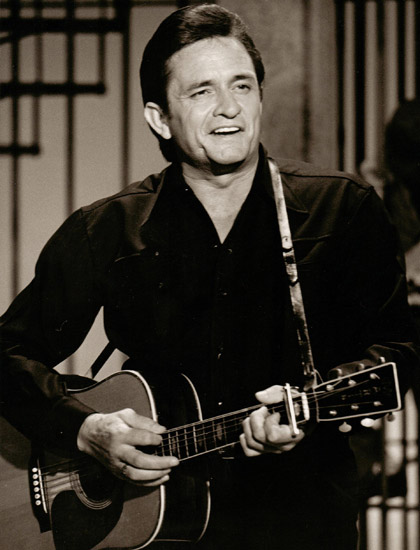Kendrick Lamar - Mr. Morale & the Big Steppers
Kendrick Lamar
Mr. Morale & the Big Steppers
By: Sam Eeckhout
Mr. Morale & the Big Steppers aims to achieve what David Foster Wallace posited as the purpose of great storytelling - to make us feel less alone.
Let’s get one thing squared away right off the bat - Mr. Morale & the Big Steppers is not a page-turner.
Great American novelists of the 20th century like Thomas Pynchon, David Foster Wallace, and William Gaddis each demanded something from their readers. Offering robust, sprawling novels thousands of pages long with hundreds of characters, these authors redefined what a novel was capable of - if you were willing to put in the work to engage with them.
In a Charlie Rose interview, Wallace said that what reading gives us is the sense of “Oh my god, that’s me! I’ve lived like that, I’ve felt like that, I’m not alone in the world….”
In Mr. Morale & the Big Steppers, Kendrick Lamar relentlessly demands a great deal from his listeners. And just like engaging with the intricate webs of the 1000+ pages of Infinite Jest, if you’re willing to put in the effort - you might have a transformative experience.
Lamar has long been the authority on vulnerability and introspection in his craft. His lyricism has always been brutally honest and painfully vivid - deserving of the Mr. Morale moniker.
While on his masterpiece good kid, m.A.A.d City he gave us a linear and real-time look at his upbringing and journey to the present - it ultimately showed us that regardless of how traumatic things have been, there’s hope.
Alternatively, Mr. Morale & the Big Steppers is a zoomed-out ultra-musing on how he's changed and what he's learned (and hasn't learned).
But despite kicking off as a near manifesto of personal exploration, Mr. Morale & the Big Steppers never stops exploring long enough to reach a definitive conclusion.
There is no finish line.
There's life long reflection of his own personal trauma, mistakes, and pain.
His inspection is admirable and heartbreaking, but also borderline dismissive of the listener. It is so intimate that it plays like a diary we aren't supposed to have ever found, making it both surprising and challenging to connect with.
From the opening verse on "United in Grief," Lamar challenges you to keep up - telling us, "1,855 days I've been goin' through somethin'" - the length of time since his last record.
The opening verse is a tremendous foreshadowing for the various themes and concepts in the album to come. Mr. Morale and The Big Steppers is held together by a thread of repeated callouts to therapy, helping him make sense of a world that he didn't (and couldn’t) understand.
It examines his relationship with his fiancee and marriage to Whitney and consequently, the different emotional pain caused to women by men.
Meanwhile, there are no shortages of his own personal discoveries. In "Father Time," he reflects on how he perpetuated his own childhood trauma from his father onto Whitney. He again challenges the listener -calling on you to break whatever cycles exist in your own family and be the change you want to see.
Mr. Morale and The Big Steppers is open-faced compassion, with Lamar saluting therapy as the catalyst for so much self-discovery.
It's a refreshing and daring message for him to take in a genre where weakness is so stigmatized.
However, the other half of the story (the accompanying music) leaves the listener hungry for a proper groove or vibe they can settle into. Without it, Mr. Morale and The Big Steppers plays mainly like a lecture, a free-jazz slam poetry performance.
With musical decisions like having Ghostface Killah's impressive verse on "Purple Hearts" utterly devoid of a beat, the album feels intentionally inaccessible, simultaneously asking how dedicated you are and slapping your hand away when you commit.
Following his appeal to the mainstream on DAMN. - it's fitting and poetic how anti-mainstream Mr. Morale and The Big Steppers ends up playing.
In line with his symbolic step down from his own pedestal as the self-appointed moral compass and savior - Mr. Morale and The Big Steppers showcases Lamar finally feeling freed from his ego to better himself. The struggle to release is not easy, and work is left to be done - but the decadent lyrical persistence is unparalleled and unmatched.
The byproduct, however, is that significant portions of the album become the most surprising synonym of all - boring. Refusing to give in to the "what's in it for us" mantra of Lamar's own listeners, most of the album is incredibly barebones, giving the audience an arduous task if not committed to bathing in his lyrical, pensive flexing.
As a whole, Mr. Morale and The Big Steppers is a striking self-portrait, a reaffirmation of a generational talent, and a dense, provocative piece of art.
Ultimately, it aims to achieve what David Foster Wallace posits as the purpose of great storytelling - "to make us feel less alone." Ironically, in creating such an immensely personal record, Lamar establishes a barrier between his own struggles and relatability to his listeners.












